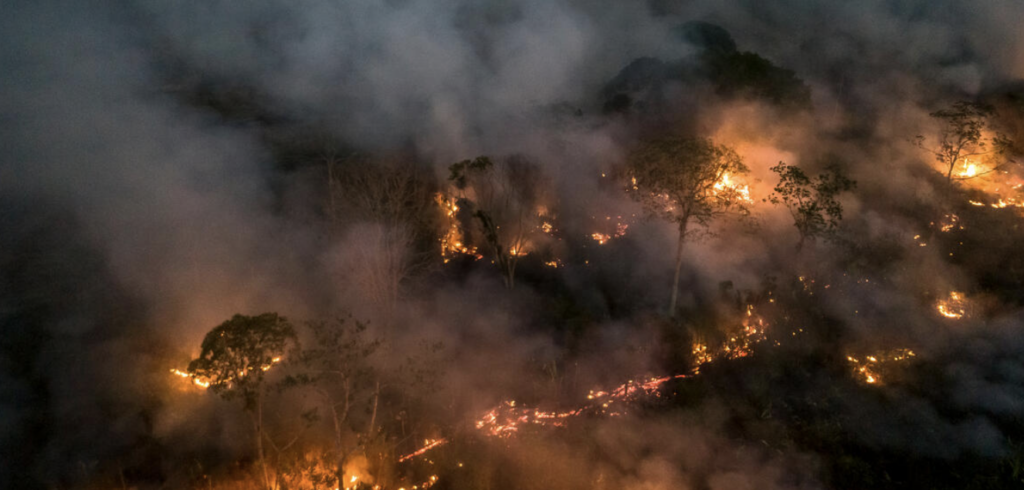The Brazilian Amazon rainforest is burning more than ever this year. Through international trade deals, the EU is partly resonsponsible for the problem but an important vote on Tuesday could quell the flames.
In the first eight days of September alone, 20,261 fires were recorded, a 385% increase compared to the same period in 2021. On Tuesday MEPs will vote on a new regulation to ensure that products sold in the EU do not contribute to deforestation.
"People don't want their consumption to contribute to deforestation or the destruction of savannahs and grasslands. They are calling on MEPs to support a strong law and not to give in to attempts to weaken the text," Béatrice Wedeux, policy officer and deforestation expert at WWF-Belgium, said.
Many of the fires are caused by burning swathes of forest to make space for agricultural exploitation. Forest fires increase exposure to the effects of drought, making these green spaces even more vulnerable to fires.
Putting nature and people's rights first
The law would demand that companies ensure products sold in the EU do not come from deforested or degraded land; MEPs are expected to request that the range of products covered is extended (it currently targets coffee, chocolate and beef).
As part of the new regulation, they would also have to verify these goods are produced in accordance with human rights provisions in international law and that their production respects the rights of indigenous people.
In the early summer of this year, several EU Member States "drilled so many holes in the proposal that what remained was more like a Swiss cheese," according to WWF.
"However, MEPs in the Environment Committee supported a more ambitious text that takes more account of nature, covers more products and increases controls on companies, and also better protects the rights of indigenous and local peoples," the organisation added.
Related News
- 3,358 fires in 24 hours: Amazon burns at fastest rate in 15 years
- Peruvian actor marries Brussels tree in Cinquantenaire park
- Forest fires in Europe caused the highest emissions in 15 years
In June, the proposed regulation found general agreement among Member States' environment ministers. However, NGOs criticised the lack of ambition.
WWF has called for clear, comprehensive and binding rules for all companies in the EU, full traceability and transparency, and more severe and dissuasive penalties, combined with high minimum standards for controls, checks and monitoring, applied to a wide range of products.
This week, MEPs will also debate and vote on a new EU Forest Strategy for 2030, proposing actions to ensure resilient forests in the EU, some of which experienced intense wildfires this summer.

